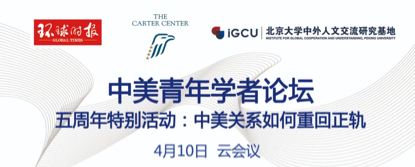
April 10, 2021 was the 50th anniversary of China U.S. Ping Pong Diplomacy. On this occasion, the Global Times, the Institute for Global Cooperation and Understanding at Peking University, and the Carter Center jointly held “Commemorating the 5th Anniversary of the China-U.S. Young Scholars Forum: 2021 Special Event”. The forum invited young scholars who had participated in the previous forums to gather online, where young scholars had in-depth discussions with former diplomatsof China and the U.S. and experts in the field of China-U.S. relations, giving suggestions on the development of bilateral relations between China and the United States, promoting exchanges and enhancing understanding between the young generations of scholars from two countries.
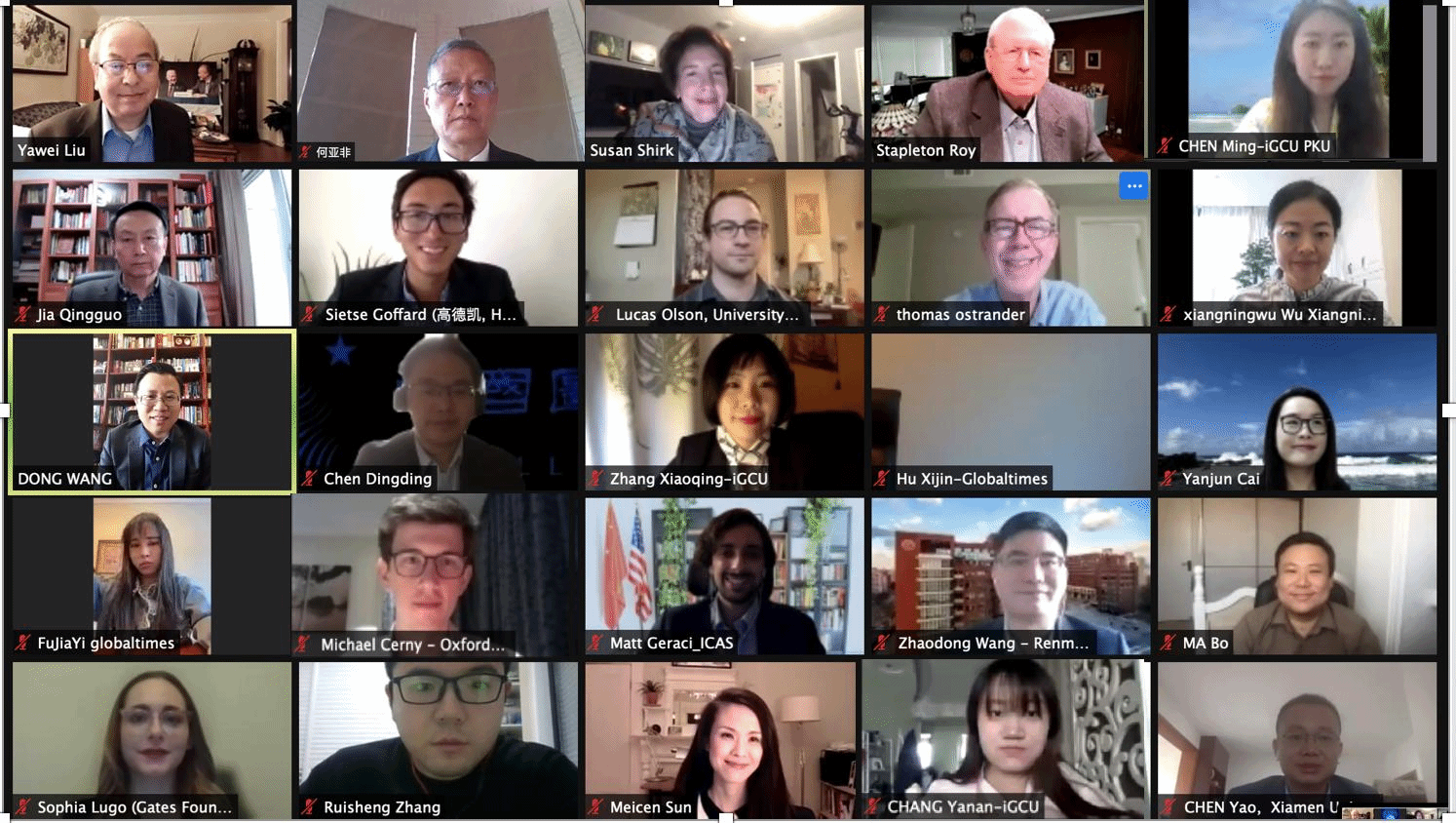
Jimmy Carter, former president of the United States and founder of the Carter Center, sent his greetings saying that "when Vice Premier Deng Xiaoping and I announced our decision to normalize diplomatic relations in 1978, we knew that we were opening an era of peace and opportunity forbothcountries. "He is proud to have witnessed theprosperousfriendship betweenthe American and Chinese peoplefounded upon increased academic exchanges. At present, China and the U.S. are facing common global challenges on such as climate change, pandemics and nuclear proliferation, Mr.Carter believes that young scholars from the two countries are important forces that can help manage the China-U.S. relations. He hopes that the participants of this meeting would jointly explore ways to clarify which differences must be overcome, so as to ensure the stable development of China-U.S. relations in the coming decades.
Opening Ceremony and Opening Remarks
The opening ceremony was moderated by Wang Dong, Professor and Executive Director of Institute for Global Cooperation and Understanding at Peking University. Hu Xijin, Editor-in-Chief of the Global Times, Liu Yawei, Director of the China Program at the Carter Center, and Jia Qingguo, Professor and Director of the Institute of Global Cooperation and Understanding at Peking University opened the Dialogue with welcoming remarks.
Looking back at China-U.S. Ping Pong Diplomacy 50 years ago, Mr. Hu Xijin thinks diplomats who started the normalization of China-U.S. relations did not foresee the relationship would grow so exponentially and become so rich and colorful, nor did they foresee this relationship would take a sudden turn and fall into a freezing state, as some described as a new Cold War. Some elites on the U.S. side are advocating for a new Cold War, where their goal is to consolidate U.S.’ comprehensive advantage to ensure its strength can always overwhelm China. However, no matter how bad the bilateral relationship becomes, Hu believes that this world will not return to a Cold War, because the vast majority of the Chinese and American people do not like Cold War. Hu mentioned that it is easy for the U.S. to start political antagonism toward China, but it's much harder to build security alliance against China. Trying to pick the entire West against China economically would be an unreachable goal. Finally, Hu expressed his trust and hope to the young scholars and encouraged them to contribute to the healthy and stable development of China-U.S. relations.
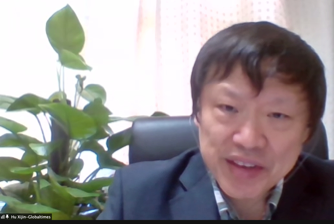
Hu Xijin, Editor-in-Chief of the Global Times
Liu Yawei reviewed the history of Ping Pong Diplomacy. Before April 10, 1971, there were several secret channels of communication between the U.S. and China. One of the most effective channels was through the president of Pakistan, Yahya Khan, who later on helped arrange the secret visit by Dr. Henry Kissinger to China. Following the Ping Pong diplomacy, was the Kissinger’s secret visit to China in 1971, which eventually led to President Nixon’s visit in February, 1972 and also the release of the Shanghai Communiqué. Liu pointed out that the first lesson to be learned from history is that officials have to try very hard to make breakthroughs in the relationship between the two countries. Second, officials must be very flexible and courageous. Third, the domestic and international circumstances may help break through ideological barriers. Finally, openness makes all the difference. It took courage for China to open up at the time and invite all the western reporters to come to China. If there was no such courage and openness, history would have been totally different. To conclude, Liu believes that many factors, such as non-governmental exchanges, leaders' vision, and the international environment, jointly contributed to the breakthrough of ideological barriers between China and the U.S., and the success of Ping Pong Diplomacy, which also shows that people to people exchanges and an open attitude can change the world and bring unprecedented historical opportunities.
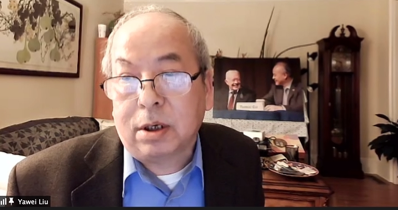
Liu Yawei, Director of the China Program at the Carter Center
Jia Qingguo noted that during the past 40 years, the China-U.S. relationship has improved and got closer, from which people of both countries have benefited tremendously. However, there is a huge stake in this relationship now. With the arrival of the Biden administration, Jia believes that there is a new opportunity to stabilize and develop the relationship between the two countries. If China and the U.S. can work together and find a way to stabilize and develop their relationship, the world will be safer, more prosperous and hopeful. Jia stressed that young scholars not only have personal interests in the future development of China-U.S. relations, but also important obligations to make sure that the relationship is going to be stable and improving. Jia noted that the China-U.S. Young Scholars Forum has in the past 5 years provided a very important platform for the young scholars from both countries to deliberate on the relationship, analyze problems between the two countries, and discuss possibilities for cooperation.
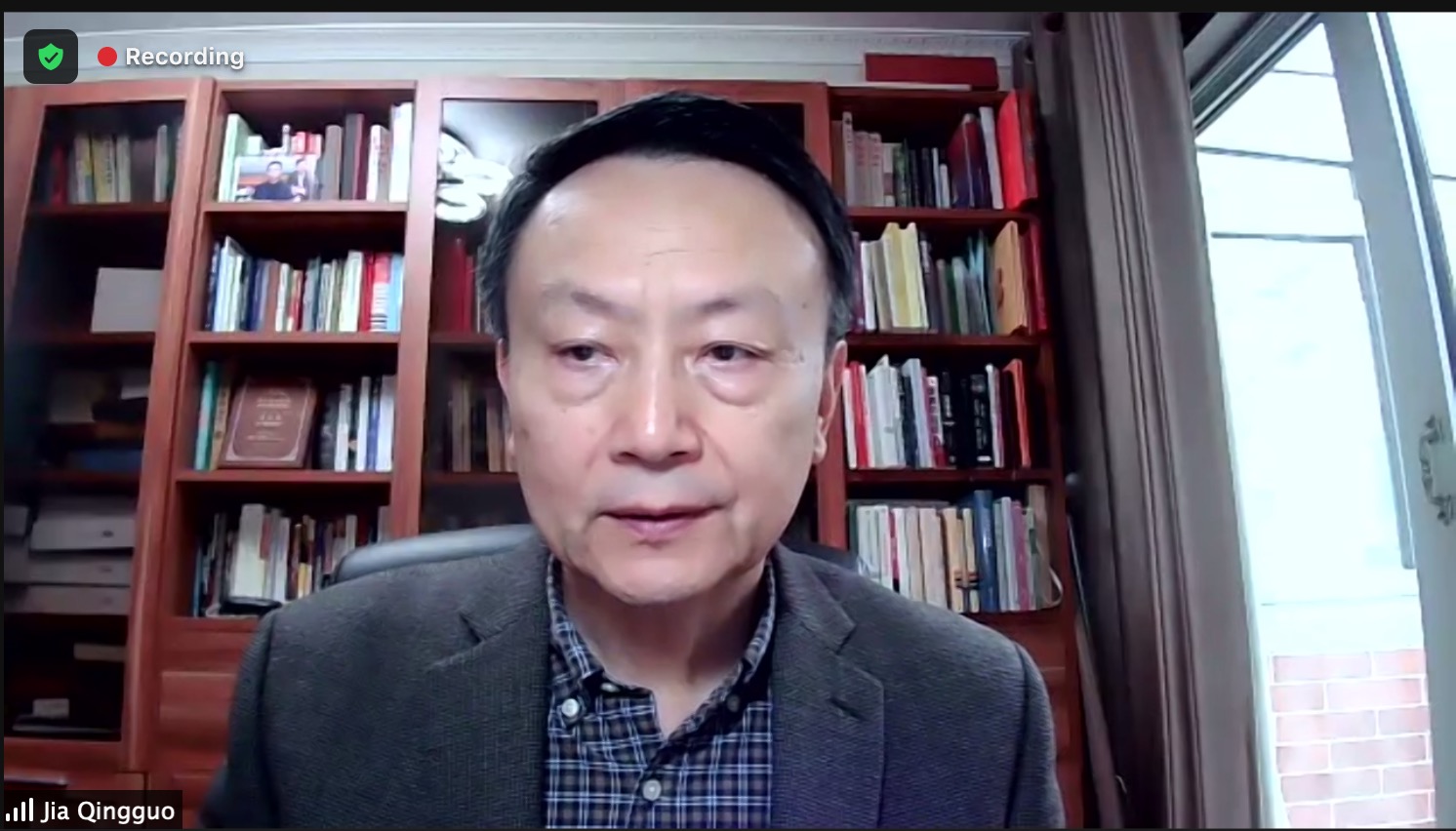
Jia Qingguo, Director of the Institute of Global Cooperation and Understanding and Professor of School of International Studies, Peking University
Keynote Speeches
Following the opening ceremony, the forum invited former senior officials and distinguished scholars from China and the United States who have long studied China-U.S. relations to deliver their insightful keynote speeches.
Minister He Yafei pointed out that the China-U.S. relationship has witnessed huge vicissitudes over the past 4 decades, and now it is at a critical juncture with strategic competition unfolding before our eyes. He cautioned that before negotiating and searching for a new path forward, both sides need cool heads in considering where we have come from. Ping Pong Diplomacy is certainly a good reminder. Minister He stressed that China and the U.S. should make every effort to avoid a new cold war or a hot war as emphasized by Chinese President Xi Jinping in his phone conversation with U.S. President Joe Biden right before the Spring Festival this year. While emphasizing that we should find and expand the space for cooperation whenever and wherever possibilities occur, Minister He suggested that there has been serious misjudgment of China’s strategic intentions by the U.S., which is probably not going to change any time soon despite the changeover in the White House earlier this year. He thinks there is so much youth can do to influence the society and the elites to turn around the bilateral relationship in the right direction of peaceful competition and fruitful cooperation, so he offered three suggestions to proceed. First, proceeding from bottom line thinking and the two countries’ competitive relationship should be acknowledged and clarified. Second, the two countries need to have a correct understanding of their cultural and ideological differences in order to reduce hostility, and avoid sinking into an ideological quagmire. Lastly, two sides should start talking on selected issues of common interest or common challenges, while considering taking parallel pragmatic confidence building measures wherever possible.
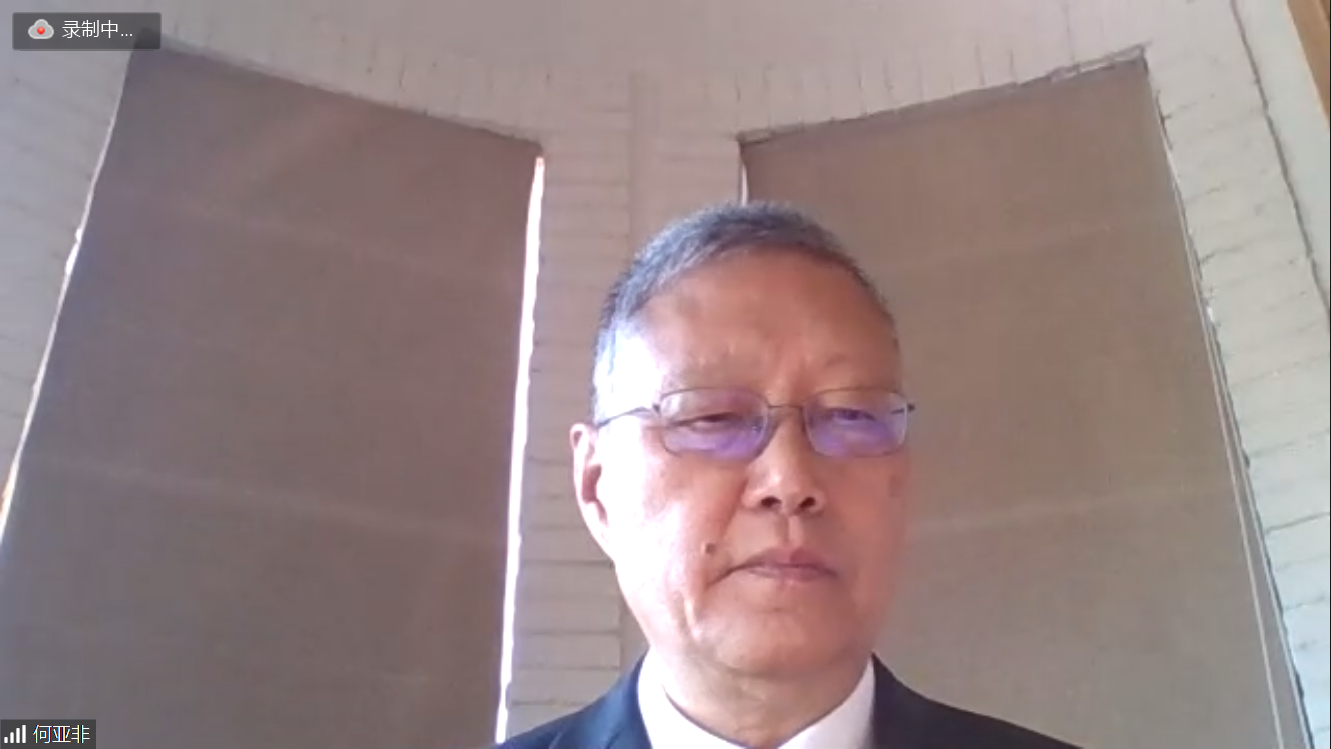
He Yafei, Former Vice Minister of Foreign Affairs of China and Former Vice Minister of the Overseas Chinese Affairs Office of The State Council
Ambassador J. Stapleton Roy noted that over the last 4 years, we have seen the most profound deterioration in the ties between China and the United States since president Nixon's visit to China in 1972. Senior officials of the Trump administration advocated decoupling the United States economy from that of China, and visas for Chinese students were sharply curtailed. Although the Biden administration took office putting domestic issues ahead of foreign policy, we have seen a flurry of administration activity in the Indo-Pacific region, kept by a contentious meeting of top foreign policy leaders of China and the U.S. in Alaska in recent weeks. Amb. Roy said some foreign policy analysts are beginning to characterize the China-U.S. relationship as one of competitive interdependence, which is an effort to make the point that we can't separate the U.S. from China. The two countries are too closely interlinked together and there is going to be that element of competition, but we have to understand that dynamic in the relationship and not exaggerate strategic rivalry. Also, Amb. Roy stressed that it is vitally important for China and the U.S. to display more consciousness of the dangers of nuclear war. Quoting the Federalist Paper No. 63, written over 240 years ago by one of the founding fathers of the United States, Amb. Roy offered the advice that both China and the United States would benefit if we give more attention to our policy thinking to ensure our actions as great powers are viewed by other countries as the offspring of wise and honorable policies. This would be consistent with a heavy responsibility we share to manage our relations in a manner that contribute to a stable, prosperous and peaceful East Asia.
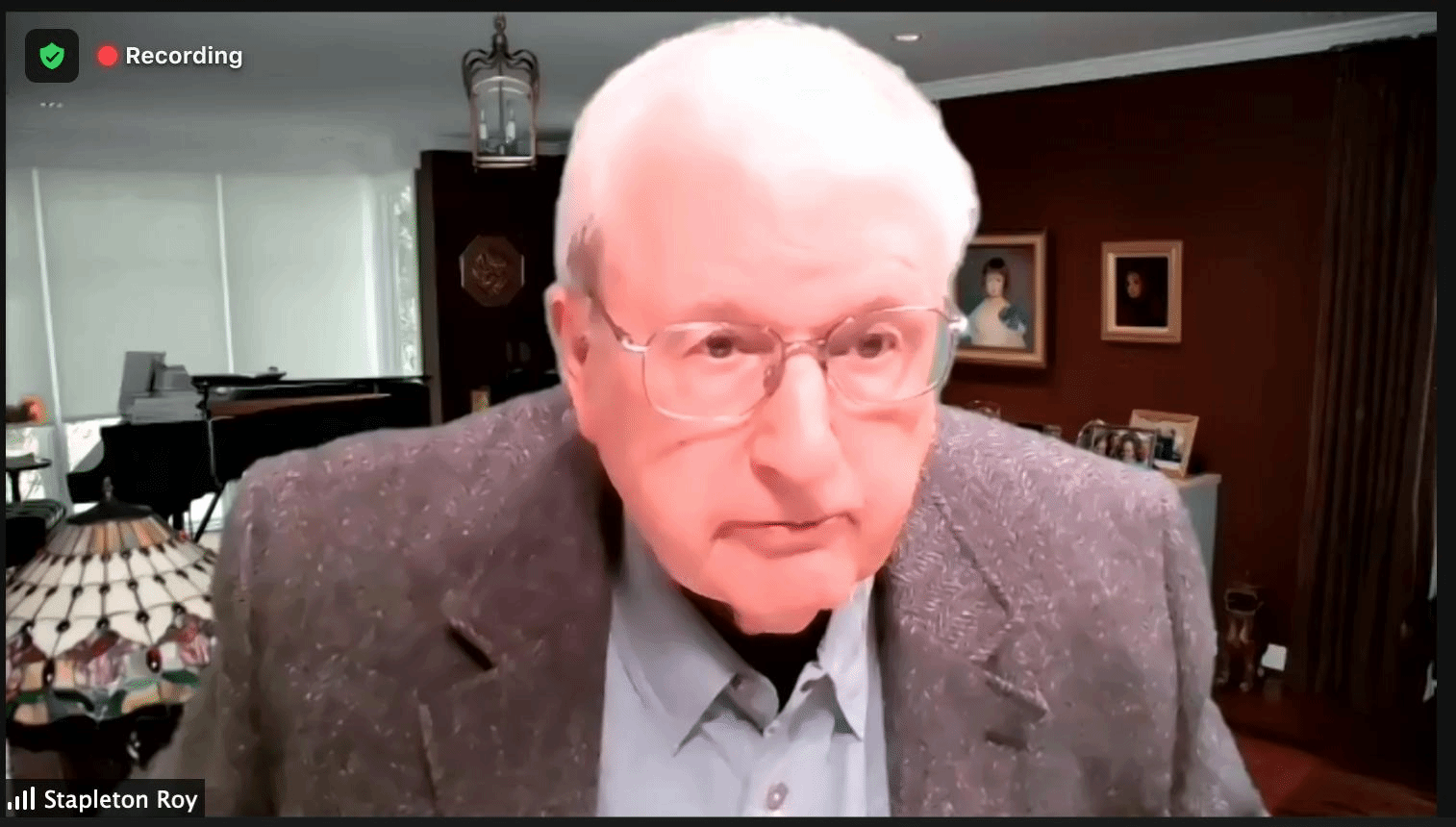
J. Stapleton Roy, Former U.S. Ambassador to China
Professor Shirk mainly focused on the crucial role of young scholars in China-U.S. relations. Talking about Ping Pong diplomacy reminded Shirk the slogan of “friendship first, competition second” at the time. She said those were the good old days in which China and the U.S. talked about friendship with a lot of good will and a lot of sincerity. Also, Shirk highlighted that it is very significant that the breakthrough was accomplished by young people from both countries spontaneously. Therefore, speaking to young scholars, Shirk believes it is very important for young scholars interested in the China-U.S. relationship and foreign policy to study domestic politics, because domestic politics drives foreign policy just as it drives other types of policy outcomes, and studying domestic politics in various countries also helps us recognize, overcome the misperception of seeing the other country as monolithic. Meanwhile, Shirk called for more attention to the domestic drivers of foreign policy and all of the complexities of domestic politics in both countries as China and the U.S. work together in the future through collaborative research, study groups and other forms of interaction.

Susan L. Shirk, Former Deputy Assistant Secretary of United States Department of State and Professor and Ho Miu Lam Endowed Chair in China and Pacific Relations of Graduate School of International Relations and Pacific Studies (IRPS) at University of California, San Diego
Discussion on Resetting the China-U.S. relationship
During the discussion on resetting the China-U.S. relationship, eight young scholars from China and the United States exchanged their personnel experiences and thoughts on how the open and warm China-U.S. relationship shaped their academic trajectory, as well as their expectations on the trajectory of this bilateral relationship. In addition, young scholars had lively discussion on the possible actions that two governments can adopt to deepen mutual understanding among students and scholars, as well as the crucial role that young scholars are able to play in reducing misperception between the two countries.
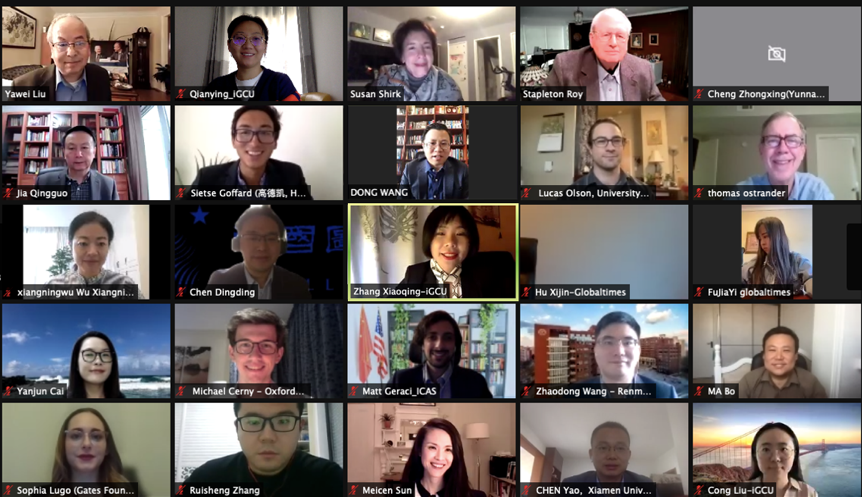
Young scholars discussing on resetting the China-U.S. relationship
Chen Dingding, Professor at the School of International Studies at Jinan University, Dean at the Intellisia Institute; Michael B. Cerny, Master of Political Philosophy Candidate at Oxford University; Zhang Ruisheng, Resident Researcher at the Rockefeller Archive Center; Matthew Geraci, Research Associate at the Institute for China-American Studies and other scholars shared their personal experiences as well as insights gained from the cultural exchanges between China and the U.S.
Sophia Lugo, Schwarzman Scholar in International Affairs at Tsinghua University; Wang Zhaodong, School of International Studies at Renmin University of China; Wu Xiangning, Assistant Professor at the School of Social Sciences at the University of Macau provided multiple perspectives for the trend of China-U.S. relations through their own researches in professional fields.
Chen Yao, Assistant Professor at the History Department of Xiamen University; Ma Bo, Researcher at the Collaborative Innovation Center of South China Sea Studies at Nanjing University; Meicen Sun, Ph.D. student at the Department of International Relations and Political Economy at MIT commented on the importance and new direction of building China-U.S. political mutual trust.
Cai Yanjun, Associate Researcher at the School of International Studies at Sun Yat-sen University; Sietse Goffard, Master of Public Policy Candidate at Harvard Kennedy School; Cheng Zhongxing, Professor at the Institute of National Politics, Yunnan University; Jessica Martin, Research Associate at the Institute for China-America Studies; Lucas Olson, Ph.D. Candidate at Jackson School of International Studies, University of Washington and other scholars emphasized the responsibility of the young generation in the efforts to promote constructive China-U.S. relations going forward.
Young scholars from both China and the U.S. believe that two countries should uphold the spirit of seeking common ground while reserving differences, maintain and strengthen dialogue and communication in various fields, and take good care of the space for people to people and cultural exchanges between each other.
Closing Ceremony and Concluding Remarks
In the closing ceremony, Wang Dong, Executive Director of the Institute for Global Cooperation and Understanding at Peking University, and Xie Rongbin, Deputy Editor-in-Chief of the Global Times gave their remarks to conclude the Dialogue.
Wang Dong expressed his appreciation to all the participants attending China-US Young Scholars Forum. Quoting what President Xi once said: “the future of China-U.S. relations lies in the hands of young people”, Wang believes young people do hold hope for China-U.S. relations going forth. Wang stressed that the spirit of Ping Pong Diplomacy needs to be revitalized today more than ever, which means to approach each other with mutual respect, goodwill and without ideological prejudices to enhance mutual understanding. “Build Forward Better”, as the Biden administration described, Wang hopes to build forward better the China-U.S. Young Scholars Forum as a platform and an incubator for mature scholarship, leadership and above all friendship. Meanwhile, Wang looks forward to the next gathering in person, as well as inviting American friends to perhaps have the opportunity to play Ping Pong together in the future forums.
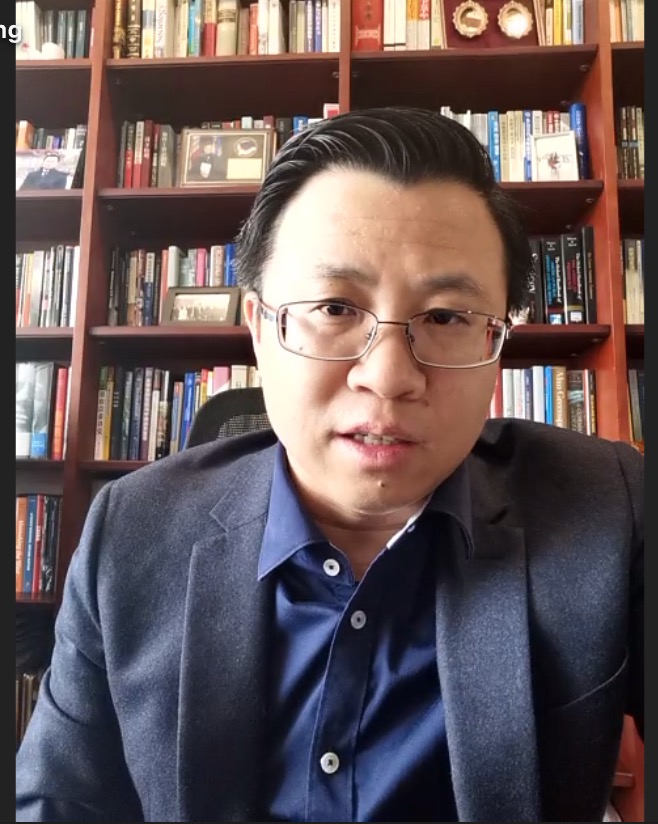
Wang Dong, Executive Director of the Institute for Global Cooperation and Understandingand Professor of School of International Studies, Peking University
Xie Rongbin touched upon the current situation of China-U.S. relationship — while the Coronavirus is still raging all over the world, China-U.S. relationship is still at the bottom, showing few signs of improvement. Referring to President Biden’s saying: U.S. wants a competition instead of confrontation with China, Xie believes that an open and fair competition is never a problem for China, but Chinese companies are being treated unfairly. Xie quotes the old Chinese saying: “a peaceful relationship between two countries will make both winners, while a confrontational one will make both losers”, suggesting China and the U.S. take a new Ping Pong Diplomacy as icebreaker, and start cooperation on common interests. In fields like climate change, the world needs China and the U.S. to work with each other in joint efforts towards a hopeful future. Meanwhile, Xie highlighted the successful holding of this forum is very important to enhance the understanding between Chinese and American scholars and the building up of the foundation of China and the U.S. exchanging.
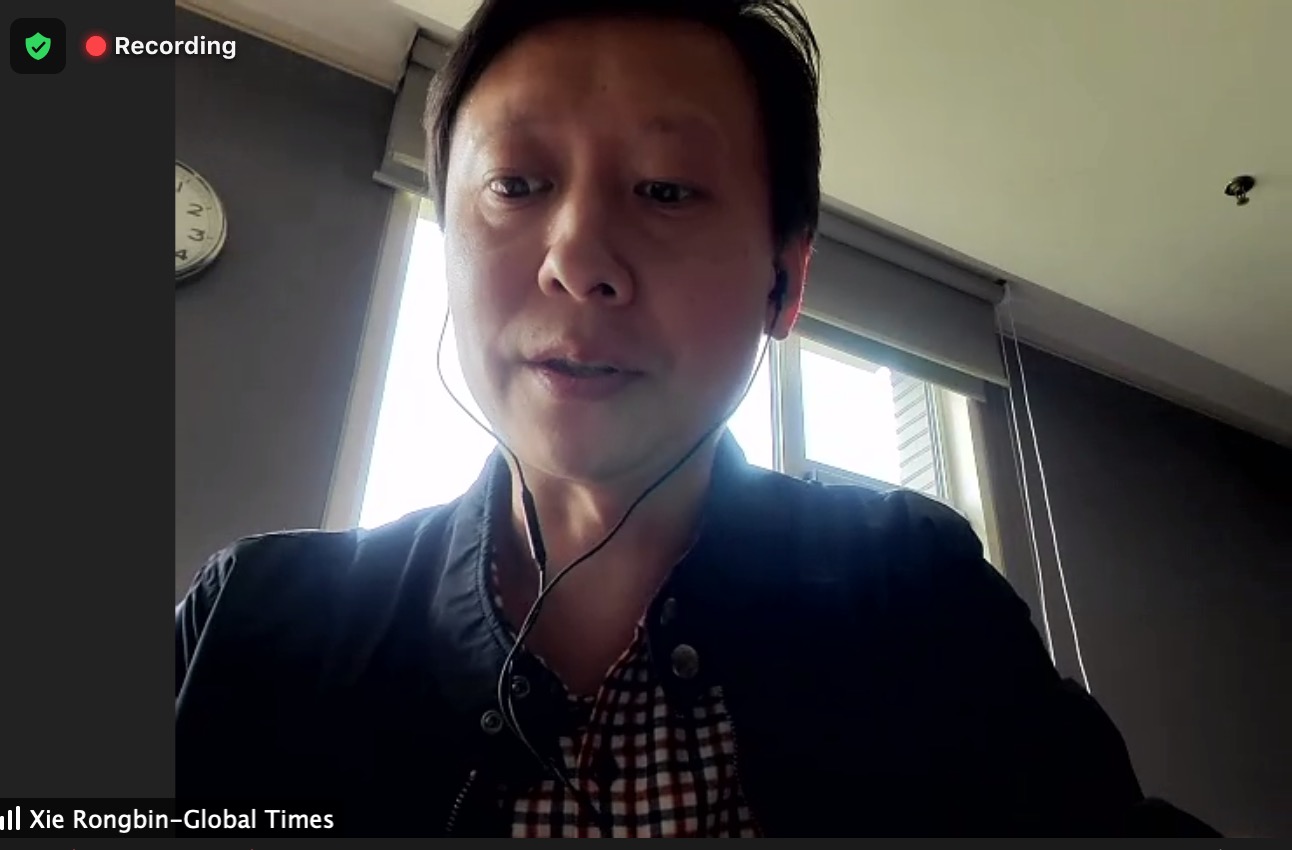
Xie Rongbin, Deputy Editor-in-Chief of the Global Times
About China-U.S. Young Scholars Forum
China-U.S. Young Scholars Forumis an academic exchange activity jointly sponsored by the Global Times, the Institute for Global Cooperation and Understanding at Peking University, and the Carter Center. It has been held five times so far, aiming to provide a platform for the young generations of scholars from China and the United States to exchange and enhance mutual understanding. Every year, the forum will invite well-known Chinese and foreign scholars in the field of China-U.S. relations to comment on the academic achievements of young scholars attending the forum. The first China-U.S. young scholars forum was successfully held in Xi’an in September 2014.
About The Institute for Global Cooperation and Understanding
The Institute for Global Cooperation and Understanding at Peking University (iGCU, formerly known as the Institute for China-U.S. People-to-People Exchange) is a cutting-edge think tank that integrates academic research, policy advising, and leadership training. The advisory board of iGCU consists of 30 former and incumbent Chinese state and ministerial level leaders, accompanied by more than 100 preeminent scholars and experts from a wide range of disciplines who serve as academic committee members and resident/non-resident research fellows. In order to fulfill its mission, “Connecting People, Understanding the World”, iGCU seeks to promote global cooperation and understanding by conducting innovative research and policy analysis. In December 2020, iGCU was selected as the source think tank of Chinese Think Tank Index 2020. In January 2021, iGCU was listed on the "top 100 think tanks of Asian powers (China, India, Japan and South Korea) in 2020", ranking 17th among the Chinese think tanks on the list.
